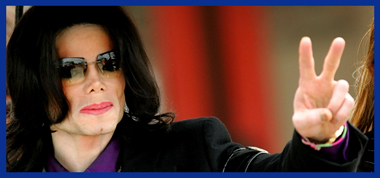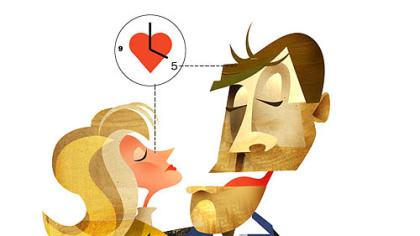
popular news june 2011 image

Colin
I'm sorry, I haven't been up to speed with international news for a while now after being in school. I know there is some trouble with Syria, and that there's something about a military strike. Are we about to go to war? I know that Russia advised the US to back off of Syria, so are we about to go to war with someone? Sorry if I sound so naive, I really gotta keep up on this stuff.
Answer
The Syrian civil war, also known as Syrian uprising or Syrian crisis is an ongoing armed conflict in Syria between forces loyal to the Ba'ath government and those seeking to oust it. The conflict began on 15 March 2011, with popular demonstrations that grew nationwide by April 2011. These demonstrations were part of the wider Middle Eastern protest movement known as the Arab Spring. Protesters demanded the resignation of President Bashar al-Assad, whose family has held the presidency in Syria since 1971, as well as the end of Ba'ath Party rule, which began in 1963.
In April 2011, the Syrian Army was deployed to quell the uprising, and soldiers fired on demonstrators across the country. After months of military sieges, the protests evolved into an armed rebellion. Opposition forces, mainly composed of defected soldiers and civilian volunteers, remain without central leadership. The conflict is asymmetrical, with clashes taking place in many towns and cities across the country. Late 2011 marked growing influence of the Islamist group Jabhat al-Nusra within the opposition forces, and in 2013 Hezbollah entered the war in support of the Syrian army. The Syrian government is further upheld by military support from Russia and Iran, while Qatar and Saudi Arabia transfer weapons to the rebels. By July 2013, the Syrian government controls approximately 30â40 percent of the country's territory and 60 percent of the Syrian population. The insurgency controls large swaths of territory in the country's north and east.
The Arab League, United States, European Union, and other countries condemned the use of violence against the protesters. The Arab League suspended Syria's membership because of the government's response to the crisis, but granted the Syrian National Coalition, a coalition of Syrian political opposition groups, Syria's seat on 6 March 2013.
In June 2013, the death toll surpassed 100,000 according to the United Nations
The 2013 Ghouta attacks were a series of alleged chemical attacks that occurred on Wednesday, 21 August 2013, in the Ghouta region of the Rif Dimashq Governorate of Syria.
Opposition and medical sources gave a death toll of 322 to 1,729, and said that none of them had physical wounds. According to the activist network Syrian Observatory for Human Rights (SOHR), which gave the lowest estimate of 322 killed.
The US planned to launch up to 100 Tomahawk cruise missiles against Syria. Iran warned that strikes would be met with retaliation on Israel.
US missile strikes would be launched without the approval from the UN Security Council, seeing 'no avenue forward, given continued Russian opposition, to any meaningful council action on Syria'. According to Russia, this action would be a "very grave violation of international law." Russia and China warned against military intervention in Syria, saying that it would have "catastrophic consequences" for the entire region
The Syrian civil war, also known as Syrian uprising or Syrian crisis is an ongoing armed conflict in Syria between forces loyal to the Ba'ath government and those seeking to oust it. The conflict began on 15 March 2011, with popular demonstrations that grew nationwide by April 2011. These demonstrations were part of the wider Middle Eastern protest movement known as the Arab Spring. Protesters demanded the resignation of President Bashar al-Assad, whose family has held the presidency in Syria since 1971, as well as the end of Ba'ath Party rule, which began in 1963.
In April 2011, the Syrian Army was deployed to quell the uprising, and soldiers fired on demonstrators across the country. After months of military sieges, the protests evolved into an armed rebellion. Opposition forces, mainly composed of defected soldiers and civilian volunteers, remain without central leadership. The conflict is asymmetrical, with clashes taking place in many towns and cities across the country. Late 2011 marked growing influence of the Islamist group Jabhat al-Nusra within the opposition forces, and in 2013 Hezbollah entered the war in support of the Syrian army. The Syrian government is further upheld by military support from Russia and Iran, while Qatar and Saudi Arabia transfer weapons to the rebels. By July 2013, the Syrian government controls approximately 30â40 percent of the country's territory and 60 percent of the Syrian population. The insurgency controls large swaths of territory in the country's north and east.
The Arab League, United States, European Union, and other countries condemned the use of violence against the protesters. The Arab League suspended Syria's membership because of the government's response to the crisis, but granted the Syrian National Coalition, a coalition of Syrian political opposition groups, Syria's seat on 6 March 2013.
In June 2013, the death toll surpassed 100,000 according to the United Nations
The 2013 Ghouta attacks were a series of alleged chemical attacks that occurred on Wednesday, 21 August 2013, in the Ghouta region of the Rif Dimashq Governorate of Syria.
Opposition and medical sources gave a death toll of 322 to 1,729, and said that none of them had physical wounds. According to the activist network Syrian Observatory for Human Rights (SOHR), which gave the lowest estimate of 322 killed.
The US planned to launch up to 100 Tomahawk cruise missiles against Syria. Iran warned that strikes would be met with retaliation on Israel.
US missile strikes would be launched without the approval from the UN Security Council, seeing 'no avenue forward, given continued Russian opposition, to any meaningful council action on Syria'. According to Russia, this action would be a "very grave violation of international law." Russia and China warned against military intervention in Syria, saying that it would have "catastrophic consequences" for the entire region
Who was responsible for the death of Myspace?

.
Myspace was the most famous website of all time then came facebook and youtube and it's popularity started to decline. Why? Who was responsible for not making innovations so that myspace could compete with facebook? NAMES PLEASE!
Answer
When the two main co-founders stepped down in mid April of 2009, Tom Anderson as the President and Chris DeWolf as the CEO, there were three changes of presidents, and CEO's, who made changes to MySpace, that most users disagreed with. The last President under the full ownership of News Corp, re-branded the site two times, with the last being MySpace, as a social entertainment destination. They also kept adding features that most users didn't want, and removing features that were highly popular such as the groups, and them replacing them with something titled Threads, which Mike Jones the last President under the full ownership was told by the moderators would not be acceptable to users.
I suspect that both Tom, and Chris advised, against such a move, but News Corp decided under the guidance of those who followed the departure of Tom and Chris, to go forward with the changes that were made, and then decided anyone over the age of twenty five years old weren't significant in numbers, and cater more towards the thirteen to twenty five years of age users whom, they by some manner determined to be those of the most significant relevance to the site, and it's future. That the loss of the older users wasn't going to be of any significance to the future of the site. Mike Jones also didn't allow the users enough time to adapt to the 2.0 profiles before rolling the 3.0 version in 2010. Which caused even more users to either delete their accounts, or abandon them. Basically Mike approved of the changes made in the last eighteen months he was the President of MySpace. So blame the brass at News Corp (not so much Rupert Murdoch though), and those that were appointed to run MySpace, after the departure of Tom and Chris, for the downfall of MySpace.
The only name I really have to give out, and where the bulk of the blame can be placed is Mike Jones, who departed about three months after News Corp sold ninety five percent ownership to Specific Media, and Justin Timberlake, in June of 2011. News Corp, though still seems to have a significant input into what is done and where MySpace goes in the future based on what has transpired since September of 2011, when the forums were removed, and it was decided that the groups wouldn't be returned as had been announced at one time by the new owners.
When the two main co-founders stepped down in mid April of 2009, Tom Anderson as the President and Chris DeWolf as the CEO, there were three changes of presidents, and CEO's, who made changes to MySpace, that most users disagreed with. The last President under the full ownership of News Corp, re-branded the site two times, with the last being MySpace, as a social entertainment destination. They also kept adding features that most users didn't want, and removing features that were highly popular such as the groups, and them replacing them with something titled Threads, which Mike Jones the last President under the full ownership was told by the moderators would not be acceptable to users.
I suspect that both Tom, and Chris advised, against such a move, but News Corp decided under the guidance of those who followed the departure of Tom and Chris, to go forward with the changes that were made, and then decided anyone over the age of twenty five years old weren't significant in numbers, and cater more towards the thirteen to twenty five years of age users whom, they by some manner determined to be those of the most significant relevance to the site, and it's future. That the loss of the older users wasn't going to be of any significance to the future of the site. Mike Jones also didn't allow the users enough time to adapt to the 2.0 profiles before rolling the 3.0 version in 2010. Which caused even more users to either delete their accounts, or abandon them. Basically Mike approved of the changes made in the last eighteen months he was the President of MySpace. So blame the brass at News Corp (not so much Rupert Murdoch though), and those that were appointed to run MySpace, after the departure of Tom and Chris, for the downfall of MySpace.
The only name I really have to give out, and where the bulk of the blame can be placed is Mike Jones, who departed about three months after News Corp sold ninety five percent ownership to Specific Media, and Justin Timberlake, in June of 2011. News Corp, though still seems to have a significant input into what is done and where MySpace goes in the future based on what has transpired since September of 2011, when the forums were removed, and it was decided that the groups wouldn't be returned as had been announced at one time by the new owners.
Powered by Yahoo! Answers

































